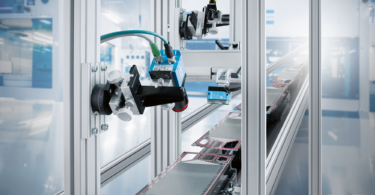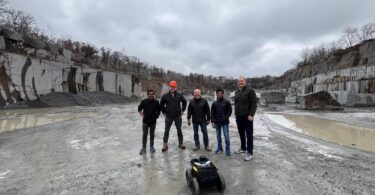A trip to Capitol Hill for a nifty knowledge exchange
What happens when you invite a sensor company to Congress? They march up the hill with robots in tow!

Well, not exactly, but it’s a nice visual 🤖🤖
Why was SICK invited to Congress?
As part of the Senate AI Caucus, Congress invited thirty companies in the automation space to a “demo day” to share their knowledge of AI in their respective industries—mainly robotics, manufacturing, and the like. SICK was the only sensor company invited to the Caucus.
More specifically: The Congressional Artificial Intelligence Caucus exists to inform policymakers of the technological, economic, and social impacts of advances in AI and to ensure that rapid innovation in AI and related fields benefits Americans as fully as possible. The AI Caucus brings together experts from academia, government, and the private sector to discuss the latest technologies and the implications and opportunities created by these new changes. (https://artificialintelligencecaucus-eshoo.house.gov/about)
The AI Caucus plays a crucial role in shaping AI policy, fostering dialogue, and ensuring that AI benefits society while addressing potential challenges. And we were delighted to engage in said dialogue!
What did SICK bring to the Senate floor?
SICK reps showcased our PLB software on a robot from Universal Robots, which is largely used for palletizing and depalletizing applications. How does this demo fit into the conversation around AI? Well, the software utilizes several localization algorithms based on CAD, geometric part features, and AI, which is what makes the localization so precise. Because of this precise localization, the PLB helps the robot operate in a large range of applications, from small-part handling and depalletizing to handling of large foundry parts.

This demo is relevant as a wide range of companies depend on palletized goods for their processes. And for human workers, depalletization presents the dreaded three Ds: dull, dirty, and dangerous. In an already tight labor market, depalletization is way down the list of desirable jobs. In this case, we were able to demonstrate the sort of tedious and physically demanding work (especially when it comes to large parts) that AI can help facilitate, keeping human workers safe and allowing them to shift their priorities to tasks that involve more brain power.
What value does SICK see in AI?
To us at SICK, Artificial Intelligence means something very special. It represents the start of a new era of sensor intelligence. It makes it possible to solve more demanding tasks, to quickly adapt to changing conditions, and to recognize patterns much more quickly, easily, and reliably than before. To capitalize on these benefits, our sensors collect valuable data, which is then interpreted by our algorithms, so you can focus on the big picture, optimize your workflows, and make efficient use of your resources.
More specifically, we focus on a subset of AI to get the most out of our smart sensors: deep learning.
Intelligent sensors with deep learning solutions
Deep learning is a subset of artificial intelligence that enables computers to mimic human decision-making and problem-solving. Our deep learning solutions help you to be more precise, more flexible and, ultimately, more successful.
With our scalable product offering, you can easily grow your business together with us. We support your business in a simple and flexible way, regardless of its size.





